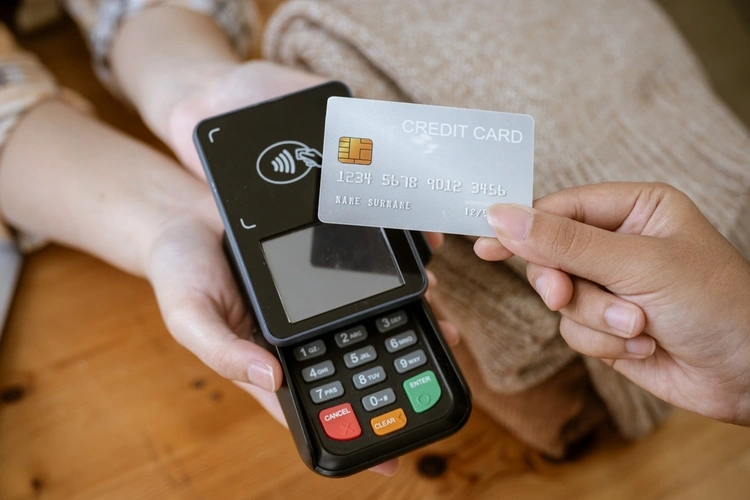How can you end up in credit?
You could find yourself with a negative balance if:
-
You overpay your credit card bill.
-
You receive a refund after fully clearing your card balance.
While this may seem harmless, being in credit on a credit card isn’t ideal. Here’s why:
-
No interest earned: Extra funds don’t earn interest, so you’re not gaining anything from being in credit.
-
No credit score boost: While having a negative balance is better for your credit score than maxing out your credit limit, it isn’t any better than having a nil balance. Whether you clear your credit card in full or overpay it, it will simply show as a zero balance on your credit report.
-
Missed financial opportunities: Credit on your card could be working harder elsewhere, like in a savings account where you’d earn interest, or paying down other debt to reduce interest charges.
-
Possible fees or restrictions: Some providers may not allow you to make a bank transfer out from a credit balance, so you’d have to contact them for a refund or spend the amount directly on purchases.
What happens when you’re in credit on a credit card?
Generally, nothing happens. Any negative balance will sit there until you spend it or request a refund. Here’s what you can do:
-
Request a refund: Some providers will transfer the extra funds to your bank account, but if they don’t automatically, you can contact them to ask.
-
Use the credit: Any purchases will reduce the balance until it’s back to zero.
Ocean Credit Card
See if it's a YES before you apply
- Up to £8,000 credit limit
- Checking won't affect your credit score
- Get a response in 60 seconds
Intelligent Lending Ltd (credit broker). Capital One is the exclusive lender.

Can you transfer a negative balance from a credit card?
You can usually transfer a negative balance to a balance transfer credit card. This could be especially useful if you want to take advantage of interest-free periods. Keep these points in mind:
-
Introductory period: Aim to clear your debt before the 0% period ends, or interest will apply.
-
Transfer fees: You’ll usually pay a fee, typically a percentage of the amount you transfer. Calculate whether this fee is worth it compared to the interest on your current card.
Is it OK to max out a credit card?
Technically, you can, but maxing out your card isn’t advised. Here’s why:
-
Impact on your credit score: Using over 50% of your limit may suggest you rely on credit too much, which can lower your score.
-
Risk of additional fees: Exceeding your limit can lead to fees and may hurt your credit rating.
-
Harder to repay: A maxed-out card could take longer to repay, especially once interest is added.
It’s best to use only what you can afford to repay.
Can you spend more than your credit limit?
Exceeding your credit limit isn’t recommended as it can:
-
Hurt your credit score: Future lenders might see this as poor money management.
-
Trigger penalties: You’ll likely face fees for going over your limit.
If you must make a large purchase, consider these options:
-
Wait if possible: If the purchase isn’t urgent, consider holding off until you’ve saved more or have a clearer plan for repayment. Waiting can give you more flexibility and reduce the risk of taking on extra debt.
-
Request a credit limit increase: Contact your provider to see if a limit increase is possible, but only if you’re confident you can manage the higher balance responsibly. A larger limit may lead to more debt if not carefully controlled, so think this through.
-
Split the payment: If you can, use a mix of credit and debit payments to avoid reaching your credit limit. This approach keeps the purchase manageable without putting too much strain on your credit card.
-
Consider an overdraft carefully: If you’re short on funds, an overdraft may be an option. Be aware of fees and interest charges and use this only if you’re confident you can cover the amount quickly to avoid longer-term debt.
Disclaimer: We make every effort to ensure content is correct when published. Information on this website doesn't constitute financial advice, and we aren't responsible for the content of any external sites.






